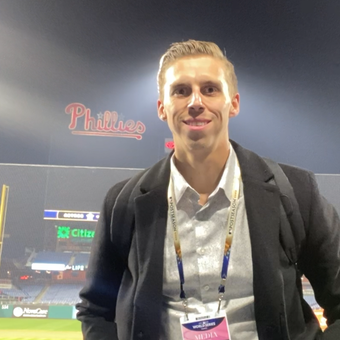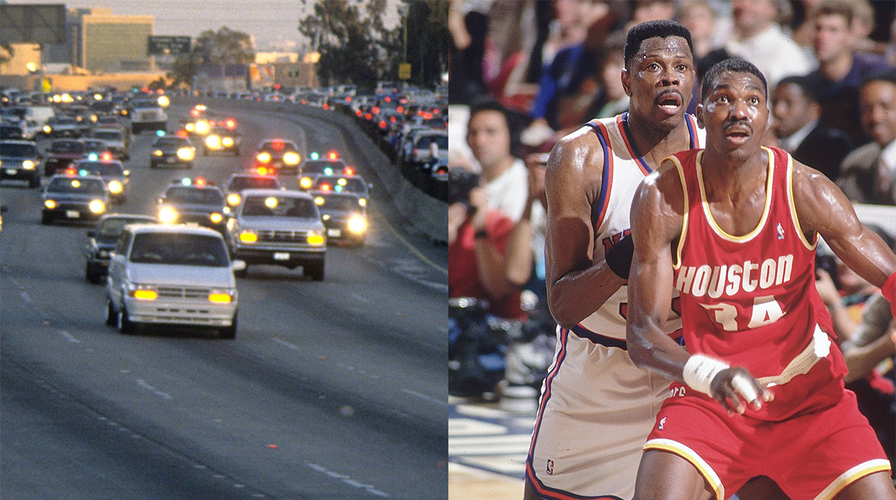Fox News Flash top sports headlines for April 10
Fox News Flash top sports headlines are here. Check out what's clicking on Foxnews.com.
A Pro Football Hall of Famer turned controversial American figure, O.J. Simpson died Tuesday at the age of 76 following a battle with cancer.
Simpson was a household in the United States long before the 1990s, and it all began when he won the Heisman Trophy in 1968.
He went on to have one of the most storied NFL careers, becoming the first player to rush for 2,000 yards in 1973 (that was in a 14-game season, and his 143.1 rushing yards per game that year remains an NFL record), and then going into Canton in 1985.
However, less than a decade later, Simpson was the subject of what would be known as the trial of the century. He was on trial accused of the murder of his ex-wife Nicole Brown Simpson and her friend, Ronald Goldman. The two were killed on June 12, 1994, but five days later, one of the oddest events in American history would unfold.
CLICK HERE FOR MORE SPORTS COVERAGE ON FOXNEWS.COM
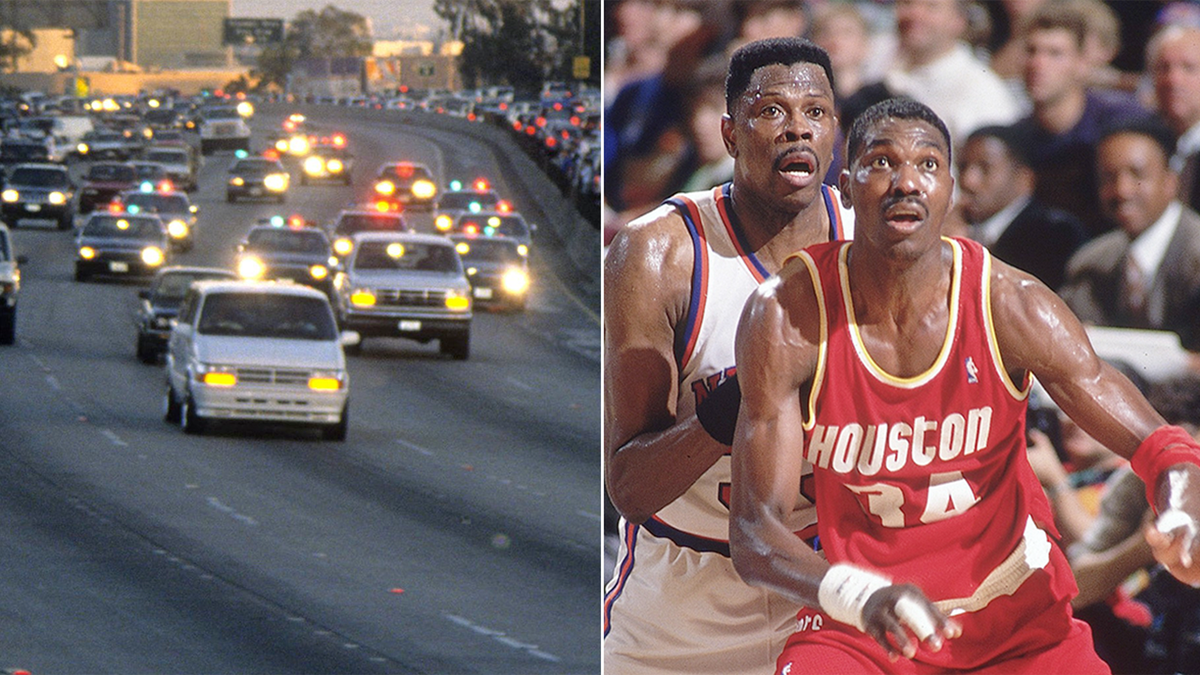
OJ Simpson's car chase interrupted the 1994 NBA Finals. (Getty Images)
June 17, 1994, marked the day Simpson was in the back of the infamous white Ford Bronco, driven by Al Cowlings, in a low-speed chase with authorities that was viewed by nearly 100 million people.
However, that was not the only major sports-related event happening that day.
It was a Friday - it was also U.S. Open weekend. Arnold Palmer, aged 64 and playing in the tournament for the first time in 11 years, was on the outside looking in at the cut line at Oakmont Country Club in western Pennsylvania. All signs pointed to it being his final round in the U.S. Open, which became the case. He received a rousing standing ovation walking up to the 18th green.
During that round, though, there was a huge party in Manhattan, as the New York Rangers were celebrating their first Stanley Cup victory since 1940 with their parade down the Canyon of Heroes. Madison Square Garden had been the place to be, as later that night, the New York Knicks would host the Houston Rockets in Game 5 of the NBA Finals. It also was the opening of the 1994 World Cup in Chicago.
The Rangers' parade and Palmer's round had ended before the chase began. The Knicks-Rockets game had tipped off, as well, as it was not until around 6:45 p.m. PT when the Bronco was spotted (the game tipped off roughly 40 minutes earlier). In fact, Robert Kardashian read what was perceived as Simpson's suicide note less than an hour before tipoff.
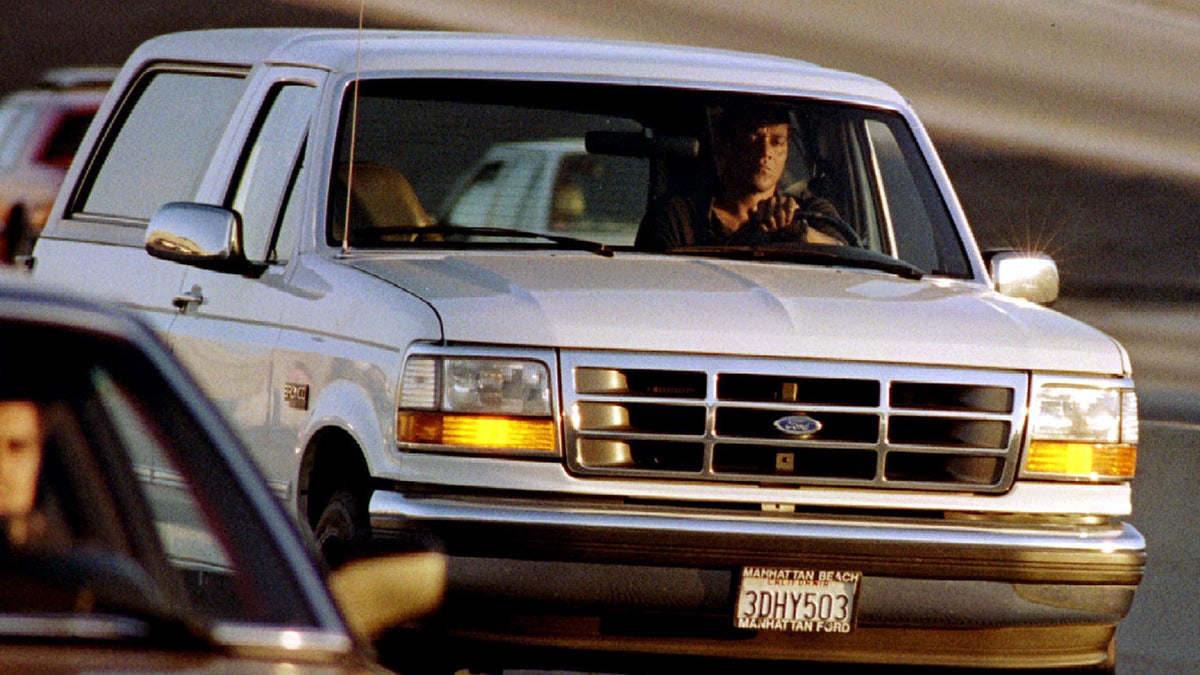
A Ford Bronco carrying OJ Simpson, hidden in rear seat, is reportedly driven by Simpson's former teammate Al Cowlings, chased by dozens of police cars during an hourslong pursuit along Los Angeles area freeways on June 17, 1994. (Sam Mircovich/Reuters)
OJ SIMPSON DEAD AT 76: TIMELINE OF KEY MOMENTS FROM FOOTBALL CAREER TO MURDER TRIAL
The Bronco chase came as Simpson did not surrender to police as expected, causing havoc and leading Los Angeles District Attorney Gil Garcetti to officially deem Simpson a "fugitive of justice." However, once cameras found "The Juice," it trumped the basketball game.
The series was tied 2-2, but with 6:39 to go in the first half, NBC cut from the Finals to the chase. Throughout the rest of the night, the two events would be broadcast simultaneously, with the game being broadcast in a small box in the corner. To this day, some Knicks and Rockets fans are still wondering what they missed when NBC cut away from the game.
Simpson, who was set to be charged with the murders, had a gun to his head throughout the car ride, with police begging him not to harm himself and throw the gun out of the car. The 405 was filled with pulled-over cars for miles just hoping to get a glimpse of Simpson, who eventually surrendered at his home.
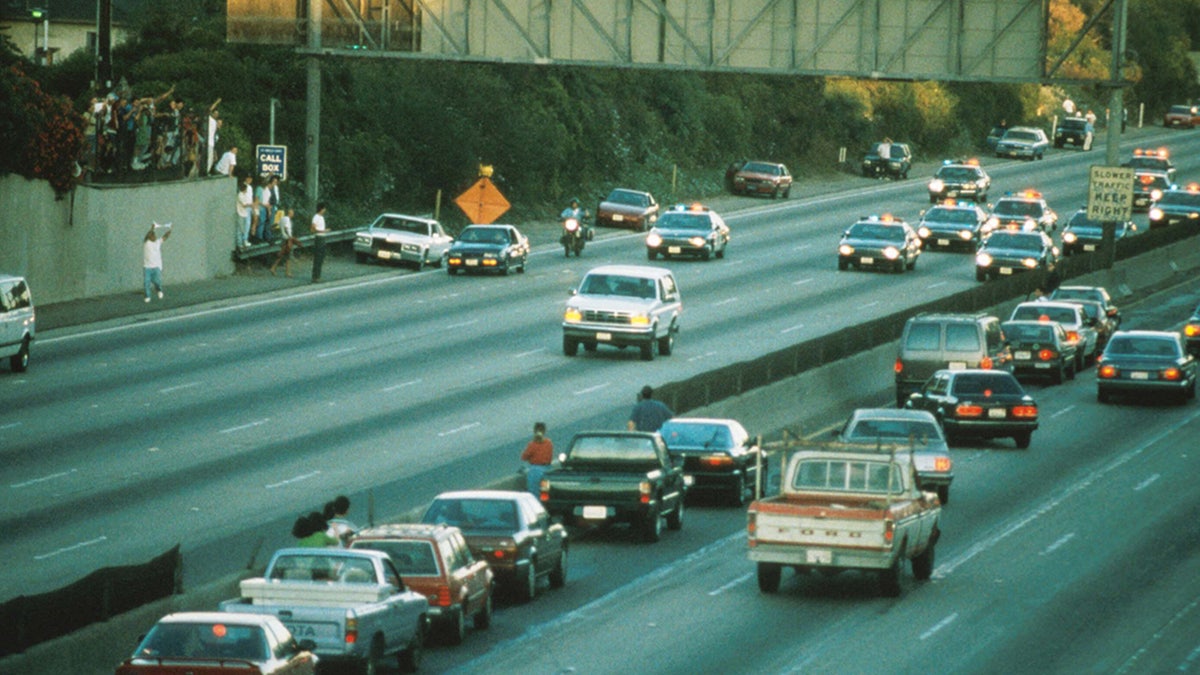
Motorists stop and wave as police cars pursue the Ford Bronco driven by Al Cowlings, carrying fugitive murder suspect O.J. Simpson, on a 90-minute slow-speed car chase June 17, 1994 on the 405 freeway in Los Angeles. Cowlings eventually drove Simpson home, with Simpson ducking under the back passenger seat, to Brentwood, where he surrendered after a stand-off with police. (Jean-Marc Giboux/Liaison)
NFL COMMUNITY REACTS AFTER OJ SIMPSON, 76, DIES FOLLOWING CANCER BATTLE
At almost the same time, the Knicks won the game, 91-84, but elated Knicks fans had to squint at the TV to see the team's biggest win since 1973.
The Rockets won the next two games at home, though, to win the title, and Ernie Els won the U.S. Open that Sunday.
June 17, 1994 was just the beginning of what became arguably the biggest trial ever. Simpson was eventually found not guilty of the murders, but he was found financially liable in a civil court later on.
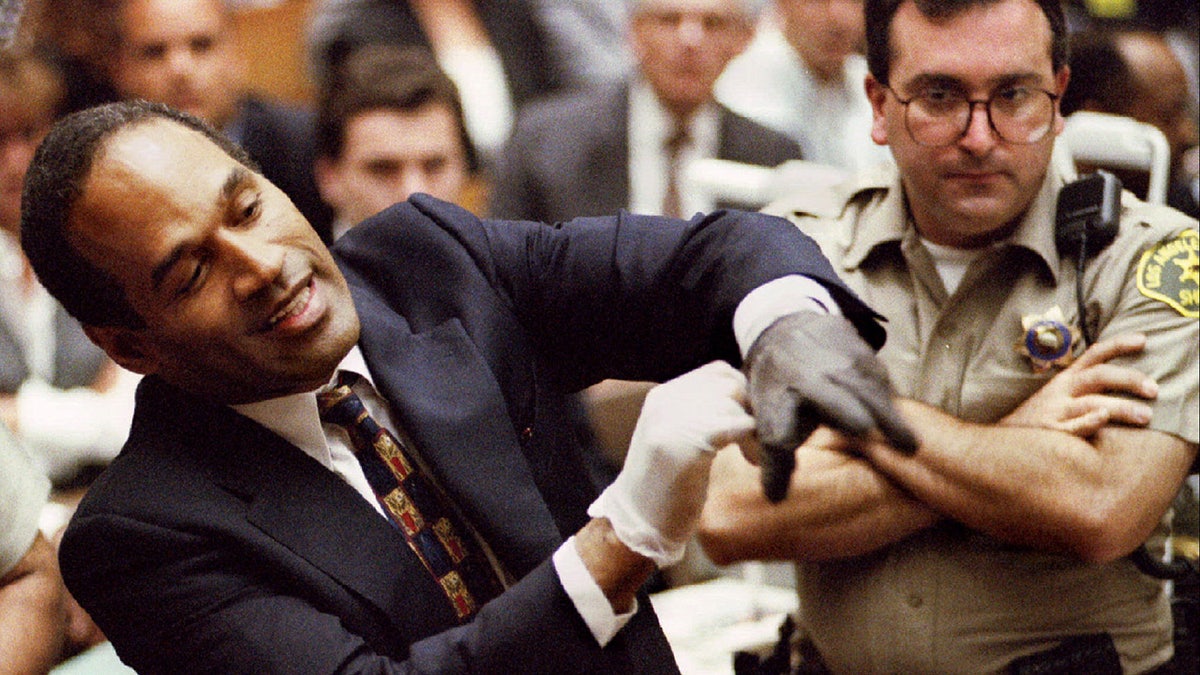
O.J. Simpson wearing the blood stained gloves found by Los Angeles Police and entered into evidence in Simpson's murder trial on June 15, 1995. (STR New/Reuters)
CLICK HERE TO GET THE FOX NEWS APP
The day's events are featured in an ESPN "30 for 30," simply titled, "June 17, 1994," a documentary film that features no narration or interviews - just clips from the day's events. Suffice to say…imagine social media were around.
As director Brett Morgen put it, "Just about every emotion that one relates to sports took place on that day," and that could not be more true.
Follow Fox News Digital’s sports coverage on X, and subscribe to the Fox News Sports Huddle newsletter.
